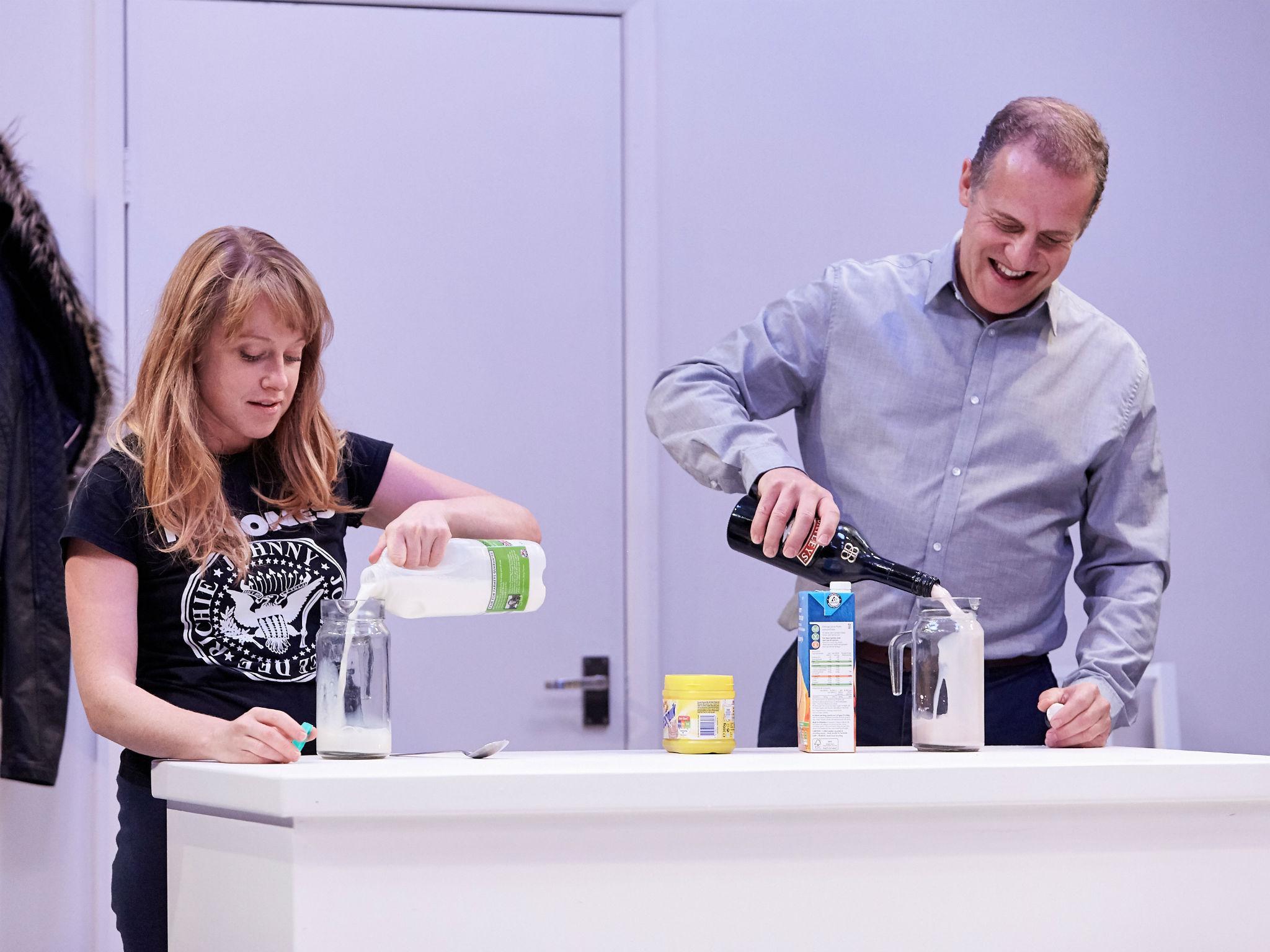Harrogate, Jerwood Upstairs, Royal Court, London, review: It manages to be tricky, elusive, queasily comic and utterly gutting
Al Smith’s Harrogate is about a middle-aged father’s creepily close relationship with his 15-year-old daughter

Your support helps us to tell the story
From reproductive rights to climate change to Big Tech, The Independent is on the ground when the story is developing. Whether it's investigating the financials of Elon Musk's pro-Trump PAC or producing our latest documentary, 'The A Word', which shines a light on the American women fighting for reproductive rights, we know how important it is to parse out the facts from the messaging.
At such a critical moment in US history, we need reporters on the ground. Your donation allows us to keep sending journalists to speak to both sides of the story.
The Independent is trusted by Americans across the entire political spectrum. And unlike many other quality news outlets, we choose not to lock Americans out of our reporting and analysis with paywalls. We believe quality journalism should be available to everyone, paid for by those who can afford it.
Your support makes all the difference.You never know quite where you are with Al Smith’s Harrogate while never doubting that you are in the hands of a clever and gifted dramatist. Unfolding as a triptych of two-handers, it manages to be tricky, elusive, queasily comic and utterly gutting.
The central thread of the piece is a middle-aged father’s relationship with his 15-year-old daughter. This has been described by a friend as “inappropriately close”, but how close it too close? At what point do paternal devotion and solicitude overstep the mark and become unsavoury interference? The play is also an eloquent meditation on what is lost as we grow older and on the difficulties of sustaining mutual desire in a lengthy relationship. Its elegy for the transient strikes a calculatedly discomfiting note conveyed through the experiences of a family that has particular cause to know the insidious forms that yearning for the past can take.
Richard Twyman’s production is extremely canny about all this and is performed on a narrow, white, strikingly minimalist traverse-set by Tom Piper. In the first scene we see the man talking to an adolescent girl in school uniform whom we assume to be his daughter. Soon, though, this impression is destabilised. “Can I have a drink drink?” she asks. “You let me last time. Baileys”. There’s a needy, prurient intensity to the way he quizzes her about a recent trip to visit her boyfriend in Leeds, before revealing that he followed her, in fact, and knows that the pair made a detour for a dirty weekend in Harrogate. Why does she sometimes need to be prompted about stuff she would automatically know (such as her GCSE subjects)? Why does he recommend that she start to practise using her left hand rather than her right?
I don’t want to reveal too much but this creepy situation is reminiscent of the role-play scenario in Pinter’s The Lover (with a couple of crucial differences) and inevitably colours our response to scene two. The man's rapport with his actual 15-year-old daughter (or is she?) seems to be frank and gossipy about friends and other dads and generates a good deal of laughter. But we're alert, by now, to his control-freak ways. Having extorted confidences about her private life, he gains an even more intimate hold over her through pacts to keep them secret from her mother. “She and I see you as a different age,” he tells her. To fool her mum that she's not been hitting the Bailey’s bottle, he helps her top it up with chocolate milk. He’s a self-serving mixture of severity (about perfume and mascara) and laxity (about drink) and of no real assistance to her in negotiating the tricky overlap between girl and woman.
“I dream about you young. When I’m asleep, you’re as young as the girl I met,” the man tells his doctor-wife of 29 years in the last scene. All three women are played by Sarah Ridgeway in a brace of superb performances that keep the characters subtly distinct while suggesting how they echoes of one another. The play itself is an echo chamber of recurring, beautifully deployed details (such as the scarf the man bought for his wife in Damascus on the day he proposed to her) that emblematise how “we grow out of the things we love” or say we do to surrender gracefully. Nigel Lindsay is magnificent as “Him”, genial and measured on the surface and disintegrating within in a terrible turmoil of emotion. Having premiered at the 2015 Hightide Festival, the play – which, by design, keeps slipping from one’s grasp – goes on a national tour after its brief run at the Royal Court. It is not to be missed.
Join our commenting forum
Join thought-provoking conversations, follow other Independent readers and see their replies
Comments